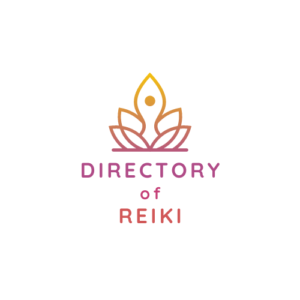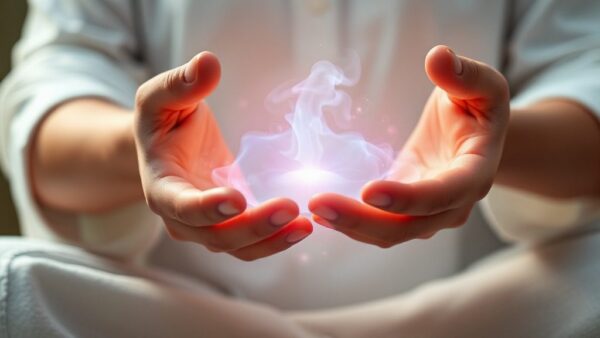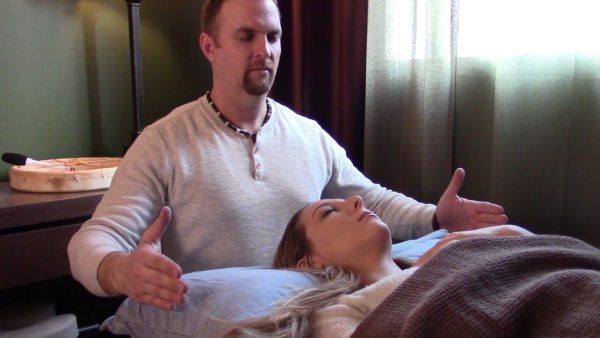Reiki Healing: A Non-Invasive Complement to Traditional Medicine for Disease Management
Reiki healing, an ancient energy-based practice, is gaining widespread recognition as a powerful complementary therapy for managing various health conditions. As more people seek holistic and non-invasive alternatives to support traditional medical treatments, Reiki emerges as a gentle yet profoundly effective tool for promoting overall well-being.
This article delves into the scientific and spiritual benefits of Reiki healing, emphasizing its role in managing diseases, reducing stress, and restoring energetic balance. If you’re curious about how Reiki energy healing works in tandem with modern medicine, read on to discover its transformative potential.
What is Reiki Healing?
Reiki (pronounced ray-key) is a Japanese energy healing technique developed by Mikao Usui in the early 20th century. The term “Reiki” comes from the Japanese words “Rei” (universal) and “Ki” (life force energy). Practitioners believe that Reiki helps restore energy flow, removing blockages that contribute to physical and emotional ailments.
Reiki is often described as laying-on-of-hands energy healing, where a practitioner channels universal life force energy to a patient. Unlike traditional medical interventions, Reiki is a non-invasive therapy that does not require physical manipulation, medication, or invasive procedures.
Instead, it works on a subtle energetic level, promoting relaxation and activating the body’s natural healing abilities.
How Does Reiki Work?
Reiki practitioners use their hands to channel healing energy into the recipient’s body, either through gentle touch or hovering over the body. The energy flows into areas that require balance and healing, restoring harmony to the chakras, meridians, and biofield (aura).
This process helps to:
- Remove energetic blockages that contribute to physical, mental, and emotional imbalances
- Increase the flow of Ki (Chi or Prana), promoting self-healing
- Support the body’s natural healing mechanisms
- Reduce stress and promote deep relaxation
- Boost the immune system and overall vitality
Reiki Healing and Traditional Medicine: A Powerful Synergy
While Reiki is not a replacement for traditional medicine, it is increasingly recognized as an adjunct therapy that enhances medical treatments. Hospitals, hospices, and clinics worldwide have begun incorporating Reiki to support patients with chronic illnesses, pain management, and emotional well-being.
Many healthcare professionals, including oncologists, nurses, and therapists, recommend Reiki for its ability to:
✔️ Enhance the efficacy of medical treatments
✔️ Reduce the side effects of medications and chemotherapy
✔️ Alleviate post-surgical discomfort
✔️ Improve mental health and resilience
✔️ Support emotional and spiritual healing
Scientific Research on Reiki Healing
Although Reiki is considered an alternative healing practice, scientific studies have shown its effectiveness in various clinical settings. Research suggests that Reiki helps in:
- Reducing pain and anxiety in cancer patients
- Improving heart rate variability, indicating reduced stress
- Enhancing relaxation responses, leading to better recovery
- Lowering cortisol levels, decreasing inflammation and stress
Now, let’s explore how Reiki benefits specific diseases and medical conditions.
Reiki Healing for Various Diseases and Conditions
1️⃣ Reiki for Chronic Pain and Inflammation
Many patients dealing with arthritis, fibromyalgia, migraines, and chronic back pain report significant relief after Reiki sessions. Reiki helps by:
- Reducing inflammation and pain perception
- Activating the parasympathetic nervous system (rest-and-digest mode)
- Balancing energy flow to affected areas
- Enhancing the body’s natural pain management system
2️⃣ Reiki for Cancer Support
Cancer patients undergoing chemotherapy, radiation, or surgery often experience nausea, fatigue, pain, and emotional distress. Reiki provides holistic relief by:
- Easing chemotherapy-induced nausea and fatigue
- Enhancing immune function
- Reducing stress, anxiety, and depression
- Providing emotional comfort during treatments
Hospitals such as Johns Hopkins, MD Anderson Cancer Center, and Memorial Sloan Kettering have incorporated Reiki healing into their integrative oncology programs.
3️⃣ Reiki for Anxiety, Depression, and Mental Health
Mental health disorders such as generalized anxiety disorder (GAD), PTSD, and depression can be debilitating. Reiki helps by:
- Inducing deep relaxation and stress reduction
- Balancing the crown, third eye, and heart chakras, linked to emotional well-being
- Increasing serotonin and dopamine levels
- Encouraging emotional release and self-awareness
4️⃣ Reiki for Autoimmune Diseases
Conditions like lupus, multiple sclerosis (MS), rheumatoid arthritis, and Crohn’s disease are characterized by immune system dysfunction. Reiki supports the immune system by:
- Reducing inflammation and stress triggers
- Enhancing cellular healing and regeneration
- Promoting homeostasis (body balance)
5️⃣ Reiki for Cardiovascular Health
Heart disease is a leading cause of death worldwide, often exacerbated by stress, hypertension, and inflammation. Reiki aids in:
- Lowering blood pressure and heart rate
- Reducing stress-related cardiac risks
- Enhancing circulation and oxygenation of tissues
6️⃣ Reiki for Sleep Disorders
Struggling with insomnia, sleep apnea, or restless sleep? Reiki helps by:
- Inducing a meditative state
- Calming an overactive nervous system
- Reducing cortisol levels, promoting deep rest
What to Expect in a Reiki Session
If you’re new to Reiki, here’s what a typical session involves:
1️⃣ Consultation – The practitioner discusses your health concerns and goals
2️⃣ Energy Assessment – Scanning the body’s chakras and energy fields
3️⃣ Laying-On-of-Hands Healing – Gentle touch or hovering hands over specific areas
4️⃣ Deep Relaxation – You may feel warmth, tingling, or deep calm
5️⃣ Post-Session Integration – Noting changes in emotions, pain levels, or energy
Reiki Healing: A Safe and Universal Energy Therapy
Unlike pharmaceuticals or invasive treatments, Reiki is 100% safe, has no side effects, and is compatible with all religious and spiritual beliefs. It can be practiced:
✔️ In-person or remotely (distance Reiki)
✔️ On all age groups, including infants and elderly patients
✔️ Alongside any medical treatment
Who Can Benefit from Reiki?
✔️ People with chronic illnesses
✔️ Cancer patients undergoing chemotherapy
✔️ Individuals with stress, anxiety, or depression
✔️ Those recovering from surgery or trauma
✔️ Anyone seeking spiritual and emotional healing
Scientific Studies on Reiki
Several clinical studies have demonstrated Reiki’s benefits in healthcare settings:
📌 Reiki and Pain Management: A study published in the Journal of Alternative and Complementary Medicine (2008) found that Reiki significantly reduced pain and anxiety in post-surgical patients compared to standard care.
📌 Reiki and Cancer Support: Research from Memorial Sloan Kettering Cancer Center indicates that Reiki helps reduce chemotherapy side effects, including nausea and fatigue.
📌 Reiki for Mental Health: A 2019 study in Medical Acupuncture found that Reiki decreased anxiety and depression while promoting emotional resilience.
These findings support Reiki’s role as an evidence-based complementary therapy for disease management.
Final Thoughts: Reiki as an Adjunct to Traditional Medicine
Reiki healing is a powerful yet gentle practice that supports disease management, emotional well-being, and overall health. While it is not a substitute for medical care, it serves as a profound complementary therapy that enhances healing at physical, emotional, and spiritual levels.
With more hospitals and practitioners recognizing its benefits, Reiki is becoming an essential part of integrative healthcare. Whether you’re seeking relief from chronic pain, emotional distress, or serious illnesses, Reiki provides a safe, natural, and holistic way to restore balance.
🌿 Are you ready to experience the transformative power of Reiki healing?


